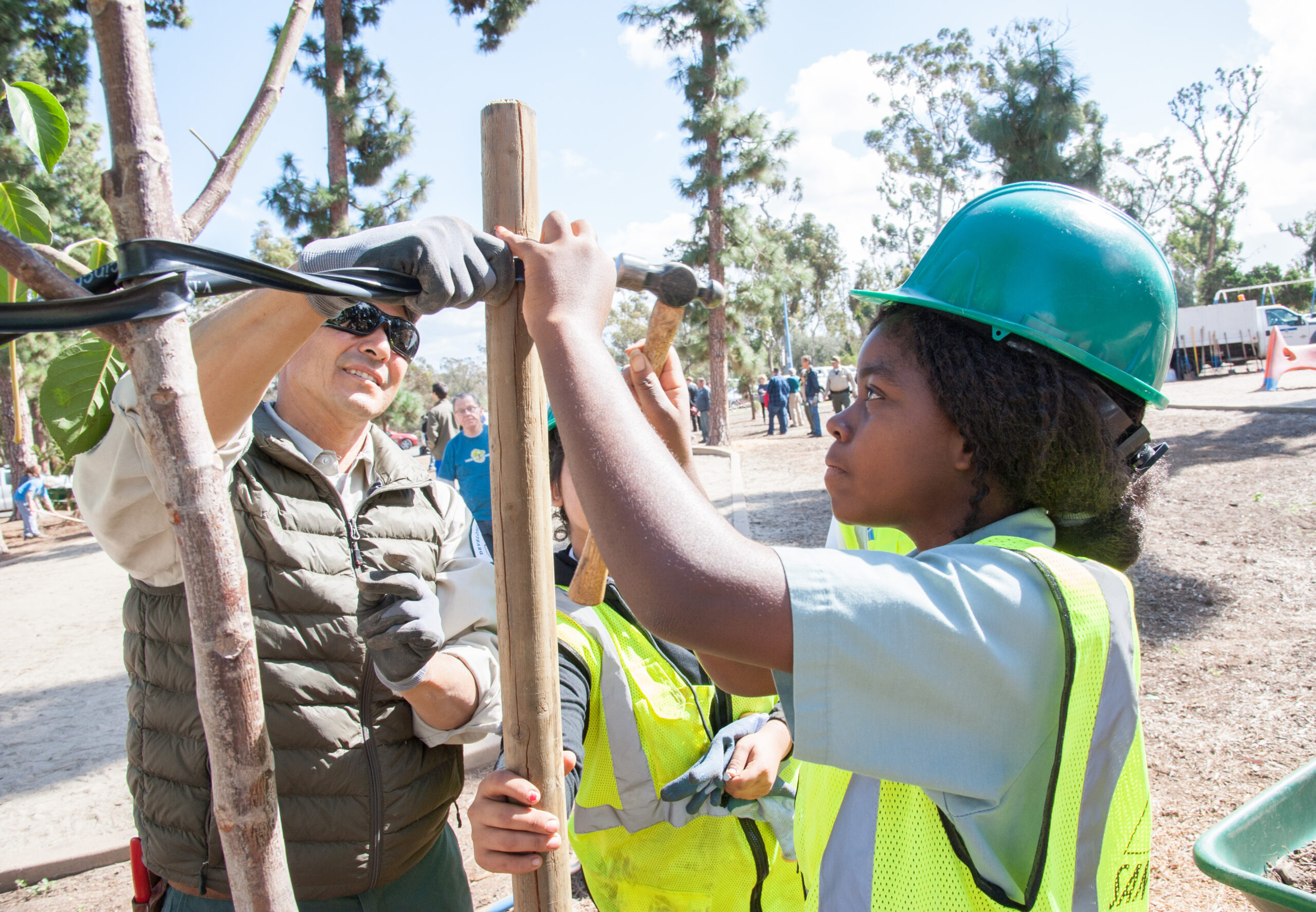By Emily Young and Christiana DeBenedict
As drenching rains give way to spring, signs of hope and renewal abound with the glorious sights and sounds of new life, just in time for Earth Day 2023 today. Celebrations across the world have been planned with this year’s call to action: “Invest in our planet.” We cannot think of a more timely and vital investment. The latest report from the Intergovernmental Panel on Climate Change, which synthesizes the findings of thousands of scientists around the world, recommends fast-tracking climate efforts in every country and on every level.
The time is ripe for more concerted local action. According to the most recent Yale Climate Opinion Maps, 76 percent of San Diegans believe climate change is already happening and 70 percent are worried about it, believing that it will harm plants and animals (77 percent), and future generations (75 percent). Furthermore, recent survey findings from The Nonprofit Institute at the University of San Diego and Luth Research highlight wildfires and climate change among San Diegans’ top concerns.
The good news is that we have a small but mighty community of nonprofits working on the front lines to advance local solutions to climate change. In fact, new research conducted by The Nonprofit Institute with funding from San Diego Foundation finds that climate/environmental organizations make up only 2 percent of more than 12,000 nonprofits in our region. Most of these organizations have lean budgets, with 50 percent operating on $250,000 or less annually. Philanthropic support is also relatively small, with only 3 percent of grants from foundations going to climate/environmental nonprofits.
While their numbers are small, these organizations have made an outsized impact with their efforts to protect our air, land and water for people and wildlife alike. Grassroots organizing by environmental justice advocates resulted in California’s first county-wide Community Right to Know Act about toxic substances in their communities in 1982. Community-driven efforts to protect natural areas from development led the county to approve the first Multiple Species Conservation Program in 1997, becoming one of the most ambitious regional conservation efforts in the U.S. With strong leadership from San Diego, ocean conservation groups worked alongside a coalition of California tribes to successfully push for the creation of a statewide network of marine protected areas in 2013, which includes projects that are co-managed by Native Nations.
Over the past few decades, clean air and water advocates have successfully pushed for improvements to basic infrastructure and more stringent requirements to reduce pollution in Barrio Logan, southeastern San Diego and the U.S.-Mexico border, as well as local tribal reservations that have borne the disproportionate health impacts of poor air and water quality.
Given the long history and successful track record of environmental leadership in our nonprofit community, it is no surprise that these groups are now coming together to tackle our most urgent challenge yet: climate change. San Diego’s catastrophic wildfires in 2003 and 2007 had a galvanizing effect in launching San Diego Foundation’s Climate Initiative to support collaboration among local academic institutions, nonprofits, philanthropy and government to take coordinated climate action on a regional scale. To date, San Diego Foundation has invested $7 million in 100-plus projects in San Diego County to reduce polluting emissions, minimize local risks from climate change and build equitable climate resilience.
Philanthropic investments in groundbreaking research by the Energy Policy Initiatives Center and Scripps Institution of Oceanography have been catalytic to local government planning and investments to address climate change. Likewise, San Diegans have given their time, talent and treasure to support an innovative array of community- and nature-based local climate solutions, including blue carbon habitat restoration; community-driven waste diversion; community-owned power to provide affordable, clean energy to local residents; regenerative urban agriculture; tribal-led resilience projects; and so much more.
Our community of environmental nonprofits has worked tirelessly on our behalf to protect the health and well-being of communities across the San Diego region. They need our help. Our recent survey of environmental nonprofit leaders found that most of these organizations need more staff and technical support for advocacy, communications and educational outreach, as well as impact evaluation. Furthermore, with unprecedented funding available from federal and state programs to address climate change, they also need help to bring much-needed funding to our region to accelerate local climate action.
On this Earth Day, let’s heed the call to Invest in the Planet by giving more broadly and deeply to support our local community of environmental nonprofits. We owe it to our children and future generations.
Emily Young is the Executive Director of The Nonprofit Institute at the University of San Diego and lives in Imperial Beach. Christiana DeBenedict is the Director of Environmental Initiatives at San Diego Foundation and lives in Ocean Beach.
This commentary was originally published in the San Diego Union-Tribune.




